UPROOTING POVERTY THROUGH COMMUNITY EMPOWERMENT
Long regarded as a poor man’s crop, cassava now brings pride and stable livelihood in Dapitan City, a third class city on the northeastern coast of Zamboanga del Norte.
These starchy tubers growing in tropical climates are made into crunchy, mouth-watering snacks that are sold in parts of Luzon, Visayas, Mindanao, and some areas overseas.
Susan Empeynado, plant manager of Dapitan Cassava Growers and Processors Association (CAGAPA), said divine providence, support from key line government agencies and local government unit (LGU) officials, and the hard work and perseverance of the cassava growers and processors of Dapitan City are the key ingredients to the business’ success.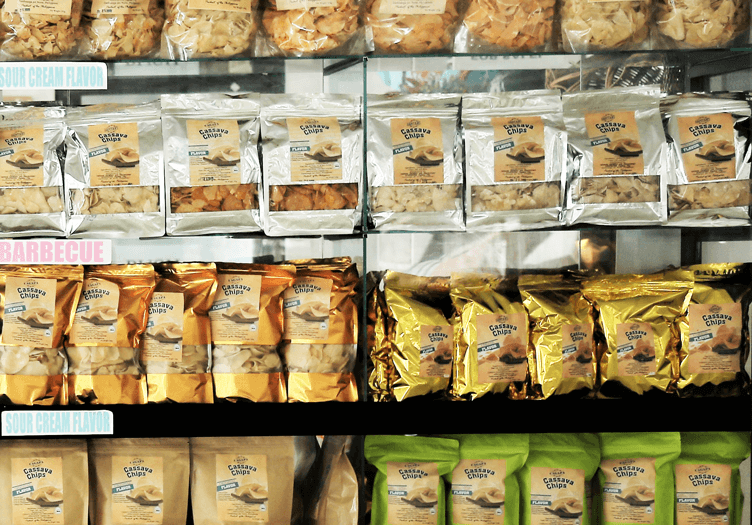
Root of success
The firm was already processing cassava chips in another city when a certain businessman, who tasted the chips, persuaded Susan to relocate to Dapitan City and bring all her knowledge to help establish CAGAPA.
Convinced of the project’s objective, she agreed to work for the Dapitan City government, at first as a consultant and eventually as a plant manager.
In June 2014, CAGAPA started its operations in a temporary processing center at the Agri Compound in Dapitan City, making the association’s first batches of chips.
Back then, the association was processing 600 kilos of raw tubers and 300 to 500 kilograms of chips per week. Today, they now process up to 1,200 kilos of cassava daily due to their new center and farm inputs from the government. The support of their partners have significantly increased their overall productivity.
The path to success, however, is not that easy.
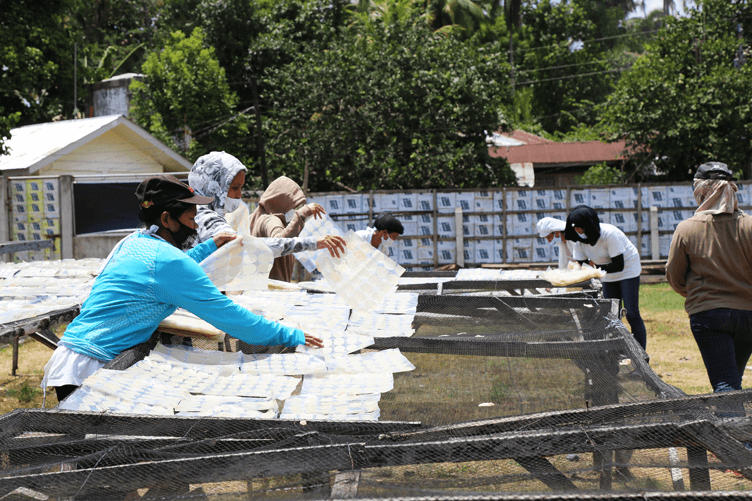
Susan recalled the birth pains of the business. Selling cassava products turned difficult because of the scare brought about by a food poisoning incident in Bohol that involved the crop. Susan, who is an agriculturist by profession, said some people even believed the false claims that planting cassava would only degrade the quality of soil.
“People looked down on cassava, and some regarded it as ‘poor man’s food’,” she said.
When the association was in its infancy, the workers were having difficulty because of the changing climate and of the small dryer available to them. They coordinated with the Department of Science and Technology (DOST) for a dryer that could meet the increasing requirements of their cassava production.
Despite the negative perceptions on cassava and the limitations on available equipment, Susan nonetheless decided to push through. There is money in planting cassava—something that she believed in.
True enough, CAGAPA was able to surpass these challenges and more.
“Every hardship that we pass through will be an opportunity for us to grow and improve,” said Susan.
When there are problems in the operations or other aspects of the business, she would give a call to DTI representatives in the area for assistance.
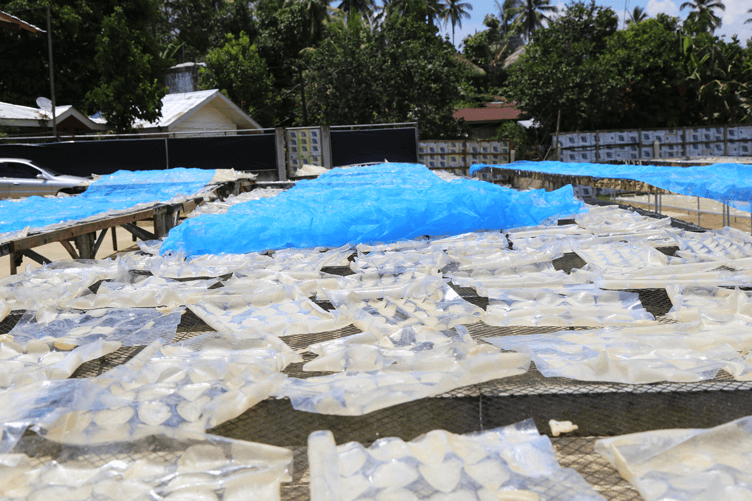
Marketing is key
The DTI-9 Regional Office played a crucial role in the group’s expansion. “DTI is an angel. Through them, we were able to make a difference,” Susan said.
She noted that the strategies– from growing cassava to marketing– taught by DTI in coaching sessions under the Kapatid Mentor ME aided the business’ success.
“These strategies came handy in coping with challenges confronting us. The learnings were imparted to us by our mentors or those entrepreneurs who were ahead of us,” she added.
In a year’s time, the association was able to expand outside Dapitan City through trade fairs and exhibits organized by DTI.
“As we reach more and more people, we were able to boost our marketing efforts in 2015. Thanks to these trade fairs,” Susan said.
The enterprise reached another milestone after the Dapitan City government constructed a Php 5.5-million processing center in Aseniero, Dapitan.
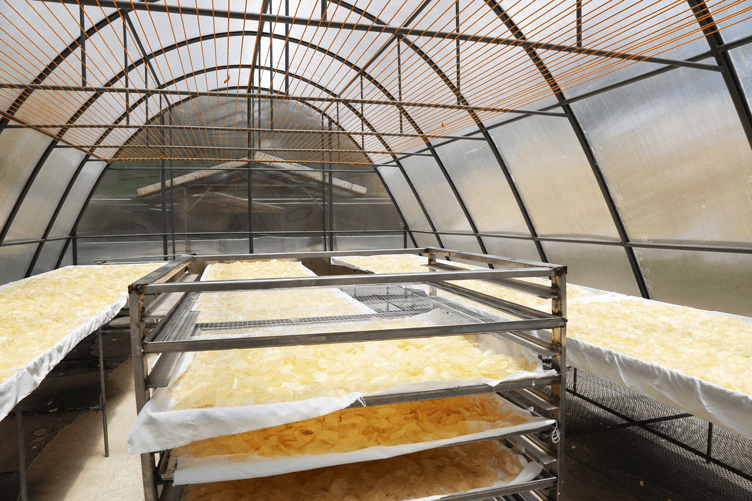
In 2014, CAGAPA emerged as the winner of the Department of Agriculture’s Cornucopia Awards, which recognized LGUs and organizations that help promote value addition of corn and cassava. The association received Php 4 million as prize, which enabled them pay for their expansion needs.
Multiplier effect
An LGU-supported initiative, CAGAPA started in 2014 with a Php 20,000 capital and 14 members. It has grown into a P10-million business today, supporting around 160 workers and farmers.
More than the pride that the business brings to Dapitan, the greatest reward that they got in putting up the enterprise is helping people across the value chain.
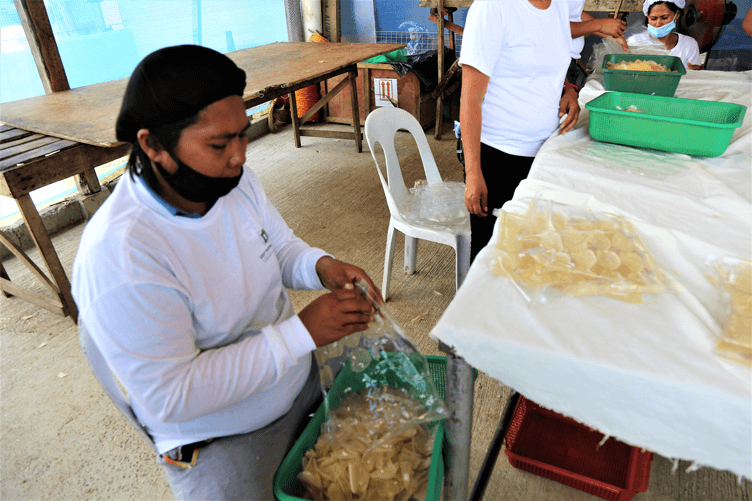
“It is a blessing to Dapitan City as it creates a multiplier effect. Apart from the farmers and processors, the business also helps the habal habal drivers and drivers of cargo trucks transporting the tubers to the processing center,” Susan said.
She shared that in 2016, their owners were also given accident insurance coverage and annual medical check-up benefits as part of the social protection offer of the association.
The group also commits to cultivate a culture of compassion and promote social inclusion. Some of the members and workers are members of indigenous groups and persons with disability (PWDs).
Future plans
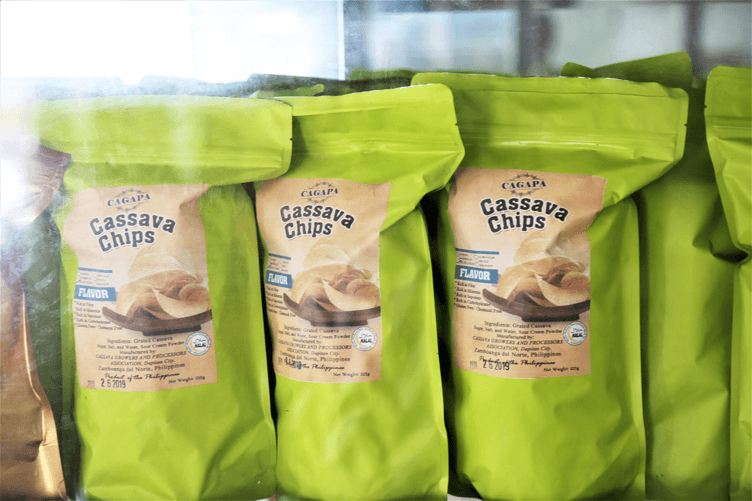
“We hope to expand further and promote more products of Zamboanga. We want to sell our products in the ASEAN [Association of Southeast Asian Nations] market,” Susan stressed.
She added that the ultimate plan is to help more people, specifically workers, to live a good life.
Susan expressed gratitude to their partners, especially the DTI, that have enabled the association members to help themselves and help others.



